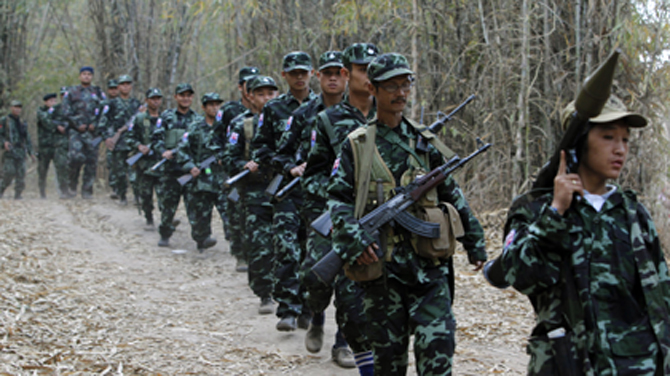They signed a ceasefire agreement once, but it now breaks down again.”
In 2004, the KNU also reached an oral ceasefire agreement with the government, but this soon dissolved as government troops launched major offensives against the KNLA which forced thousands of civilians to flee their homes.
Burma’s pro-democracy icon Aung San Suu Kyi recently said during a campaign speech broadcast on state-run MRTV that doubts and disagreements between the Burmese government and ethnic minorities have existed since Burma achieved independence in 1947, and the Burmese government has been using military means to solve ethnic conflicts since then.
“We have to work on a real federal union that grants equality, rights and self-determination to ethnic minority groups based on the spirit of the Panglong Agreement,” said Suu Kyi.
“We can only develop our country when the civil war comes to an end. I totally believe that our ethnic minorities don’t want to separate from the nation and want a real democratic federal nation.”
Ethnic leaders, including of political heavyweights the KNU and KIO, said that the sincerity of the Burmese government is key to rebuilding trust with armed rebel groups.
Phu Hoe, a 60-year-old KNLA fighter at a frontline outpost in northern Karen state, said, “[The Burmese government] cheat us always. While they were holding peace talks with the KNU, they prepared for military activities by increasing their troops. When they got ready, they launched attacks against us. It has happened repeatedly in the past.
“Everything depends on the Burmese government’s sincerity to build peace with ethnic minorities,” he added.

